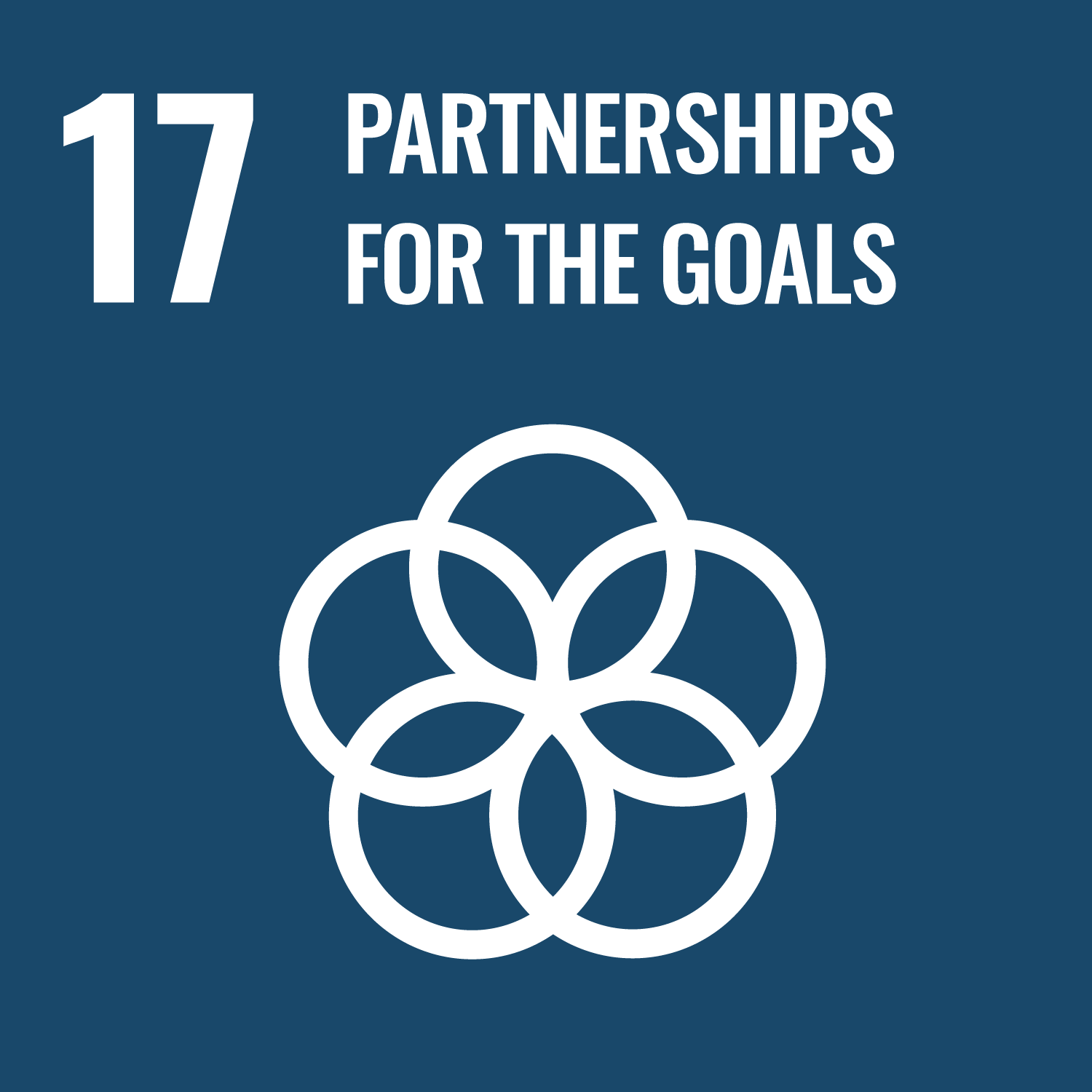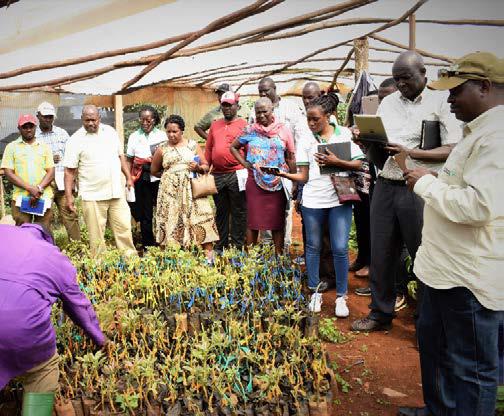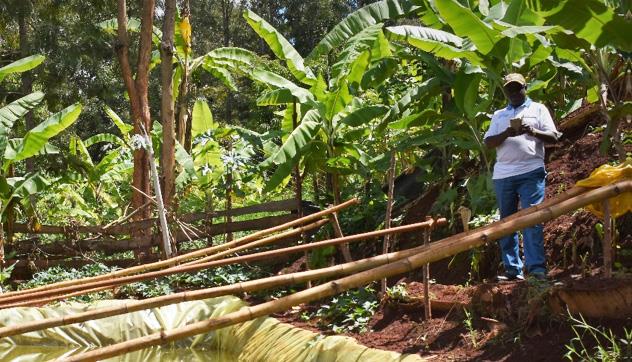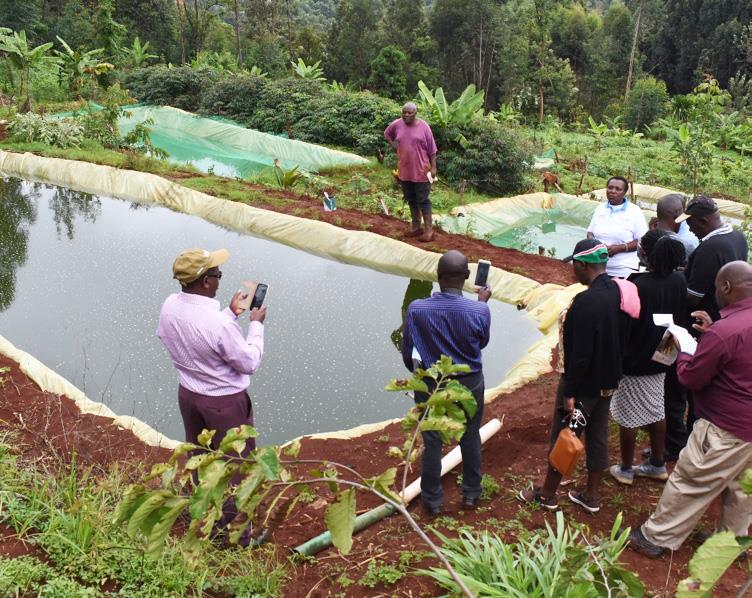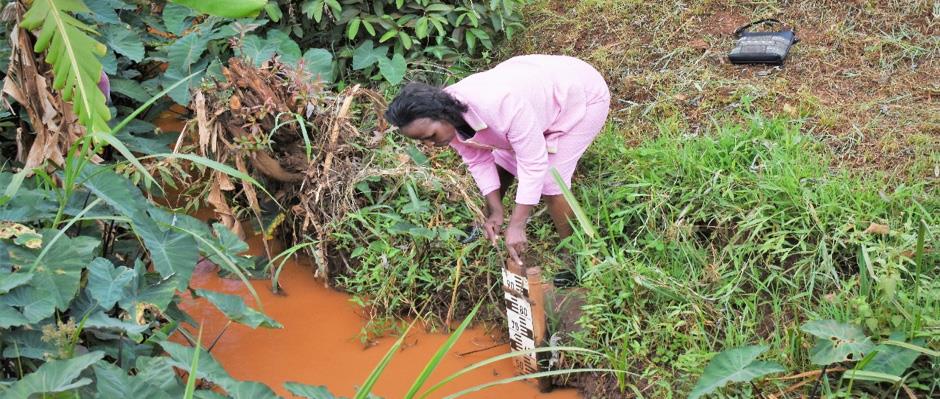Efficient Poverty Reduction through Natural Resource Management
Emphasizing the importance of natural capital and ecosystem services to enhance agricultural productivity and reduce hunger and poverty
Challenges
Sub-Saharan Africa is experiencing environmental degradation driven by unsustainable agricultural practices. One example is the highlands above Nairobi, which are home to over 100,000?smallholder farmers who rely on the river for irrigation. Since the 1970s, agricultural activities along the upper reaches of the Tana River have increased abstraction and siltation, which impacts communities and ecosystems downstream and has reduced the water supply to Nairobi. Another example is the Karamoja subregion of Uganda, which is significantly affected by unpredictable periods of drought and rising levels of environmental degradation. Additional factors impacting agricultural productivity include limited access to markets and insufficient policies for natural resource management. As a result, chronic food insecurity and poverty affect most of the population in Karamoja, particularly women. In an effort to reverse these challenges, the ‘Resilient Food Systems’ programme builds on successful approaches to scale up integrated natural resource management and sustainable land management (SLM).
Towards a Solution
The five-year ‘Resilient Food Systems’ programme, led by the International Fund for Agricultural Development (IFAD), aims to foster sustainability and resilience for food security in 12?sub-Saharan African countries. It promotes a holistic approach to enhancing agricultural productivity and restoring degraded landscapes in smallholder farming systems. Drawing on the successful past investments of IFAD, including the ‘Upper Tana Natural Resource Management’ project in Kenya, the ‘Upper Tana-Nairobi Water Fund’ (UTNWF) project established a water fund in Africa, the first of its kind. Through its extensive network, UTNWF is supporting smallholder farmers in rainwater harvesting, drip irrigation and climate-smart farming practices. Another project under the ‘Resilient Food Systems’ programme, ‘Fostering Sustainability and Resilience for Food Security in Karamoja Subregion’ (FSRFSU) in Uganda, seeks to build on successful practices that have yet to be promoted in the area, including rainwater harvesting and rangeland rehabilitation techniques. FSRFSU also promotes alternative sources of livelihood within existing value chains.
With the participation of several government delegates, the FSRFSU project in Uganda undertook a cross-country exchange that focused on the technologies and practices of SLM and climate-smart agriculture currently being implemented by the IFAD-funded UTNWF project in Kenya. These practices were shared with the FSRFSU team to improve food security and support watershed conservation techniques. The project team also learned about the benefits of improving practices on farms for commercial fishing and harvesting rainwater for irrigation. The exchange allowed participants to acquire the knowledge to address issues in the subregion and support the achievement of Sustainable Development Goal?2 on hunger, Goal?6 on clean water, Goal?13 on climate action and Goal?15 on life on land.
Given the similarities in the areas of intervention, the ‘Resilient Food Systems’ team in Uganda followed up with UTNWF for an educational visit. The South-South interaction was undertaken to share knowledge and best practices for using innovative SLM to mitigate the shocks from food insecurity and the associated pressures of environmental degradation and climate change.
As is the objective in any South-South interaction, the exchange between the delegations from Kenya and Uganda was mutually beneficial. The delegation from Uganda was composed of representatives from the Ministry of Agriculture, Animal Industry and Fisheries; the Ministry of Water and Environment; and other partners from the national and district levels. They were exposed to a number of innovative practices and techniques, while the hosting UTNWF project team benefited from the delegation’s experience in promoting increased social organization among farmers. Given that it is customary for farmers in Kenya to work individually, which is labour intensive and costly, the delegation from Uganda discussed the importance of working as a community and encouraged the development of a rotational schedule among smallholder farmers. The delegation from Kenya also identified a capacity-building opportunity for youth groups from the FSRFSU project to learn from those involved in the UTNWF project, who have been instrumental in building water pans. These are small reservoirs, about one to three metres deep, usually dug off-stream and surrounded by raised and compacted banks. They are constructed to collect and store run-off water from hillsides, roads, rocky areas and open rangeland.
The exchange highlighted a number of innovations, particularly those related to protecting watersheds and relocating economic activities away from riverbanks. One such innovation was the use of water pans lined with polyurethane to support the cultivation of arrowroot (a wetland crop) at higher elevations, in the upper areas of water catchments. This alternative method reduces the need to access scarce water resources directly from riverbanks. For farmers with no direct access to the river, water pans were also constructed adjacent to roads and roofs, allowing for rainwater collection year-round. Such temporary measures are simple, cost-effective and easily replicable and will support farmers while they work to procure solar pumps.
Another innovation shared with the FSRFSU project was the introduction of land-use planning systems. The UTNWF project uses a successful farm planning strategy that facilitates water conservation by increasing tree cover from high-value crops, such as avocado trees. This tree cover has enabled farmers to grow other cash crops, such as coffee and bananas, as well as establish woodlots, thereby providing them with an additional source of income.
These innovative practices can be replicated with the proper technology, particularly that used for harnessing water for irrigation, which is adaptable to many socio-economic and ecological conditions. Exchange visits should be conducted to allow extension officers and farmers to learn from the experiences of those who have adopted the technology.
Contact Information
Mr. Stephen Muwaya, Programme Coordinator, Sustainable Land Management/UNCCD Focal Point, Ministry of Agriculture, Animal Industry and Fisheries
Countries involved
Kenya, Uganda
Nominated By
International Fund for Agricultural Development (IFAD)
Supported By
International Fund for Agricultural Development (IFAD)
Implementing Entities
Governments of Kenya and Uganda
Project Status
Completed
Project Period
1/2012 - 12/2020
Sectors
Agriculture, Food and Rural Development, Natural Resource Management, Development Cooperation, Capacity Building
URL of the practice
http://www.utanrmp.or.ke/about-utanrmpPrimary SDG
02 - Zero Hunger
Secondary SDGs
01 - No Poverty, 17 - Partnerships for the Goals
Primary SDG Targets
2.3Similar Solutions

